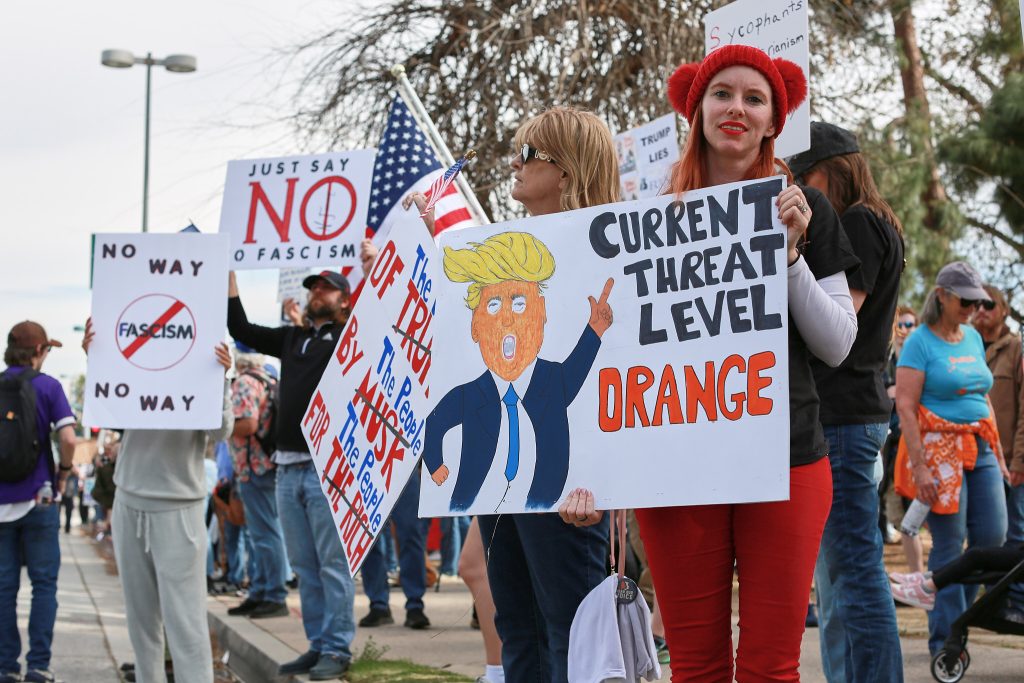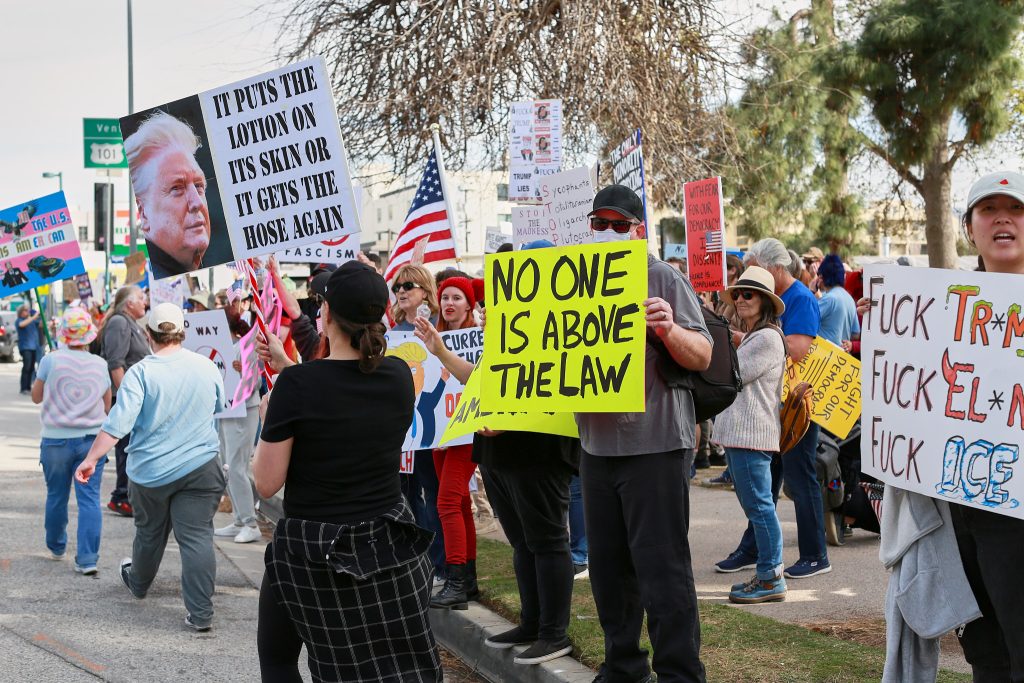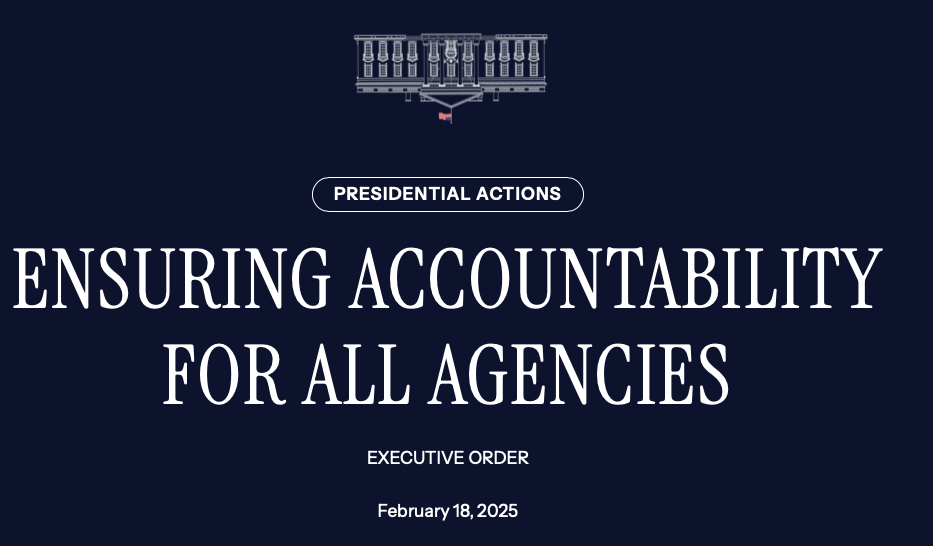Trump’s Power Grab: The Executive Order Designed To Cripple Independent Agencies
On February 18, 2025, President Donald Trump signed an executive order that effectively asserts his administration’s absolute control over federal law enforcement and independent agencies. By claiming that only he and the Attorney General can define executive branch law, Trump takes another step in dismantling regulatory independence. If left unchallenged, this order will fundamentally alter the balance of power between the White House, Congress, and federal agencies—raising serious constitutional concerns.
A Direct Attack on Independent Agencies
For decades, independent agencies like the Federal Trade Commission (FTC), the Securities and Exchange Commission (SEC), and the Federal Communications Commission (FCC) have operated with a degree of autonomy. Their power comes from laws passed by Congress, designed to insulate them from direct presidential interference. However, Trump’s latest executive order brings these agencies under White House control, requiring them to submit draft regulations for review, consult with the administration on policy priorities, and coordinate with the Office of Management and Budget.
This is not just bureaucratic meddling—it is a direct assault on the regulatory structure designed to keep corporate and political power in check. By forcing independent agencies to bow to White House directives, Trump is ensuring that regulatory decisions reflect his administration’s political interests rather than public interest or legal precedent.

The Supreme Court’s Role: A Constitutional Crisis in Real-Time
Trump’s executive order doesn’t just defy precedent—it dares the Supreme Court to stop him. The question is: will they?
The precedent is clear. In Humphrey’s Executor v. United States (1935), the Supreme Court ruled that independent agencies must remain insulated from direct presidential control. If the Court follows its own history, this executive order should be dead on arrival.
But this isn’t just any Court. This is a Supreme Court stacked with justices Trump himself appointed, a bench that has already expanded executive power in ways that favor his agenda. So the real question isn’t whether this order is legal—it isn’t. The question is whether the Court will invent a justification to uphold it. (TheHill.com)
When the conservative majority sides with Trump, the implications are catastrophic:
- Presidential control over independent agencies would become the norm. Any future president could reshape regulations at will, bending financial oversight, media control, and election law to suit their political needs.
- The Court will have officially sanctioned executive supremacy. Congress, already weakened, would find itself reduced to a ceremonial body, passing laws that presidents can ignore or redefine through executive orders.
- The judiciary will cease to be a check on authoritarian power. If the Court refuses to enforce limits on the executive branch, then who does?
At its core, this is a test of whether the Supreme Court still functions as a check on presidential overreach or whether it has become a rubber stamp for authoritarian ambition.
If the justices uphold Trump’s order, the message is clear: independent agencies are dead, and the next step in executive control is already here.
Dangerous Precedents: Eliminating Independence, Weaponizing Budgets, and Enforcing Legal Loyalty
This executive order represents a multi-pronged assault on the fundamental principles that keep agencies independent and accountable.
- Eliminating Agency Independence: Agencies like the SEC, FCC, and FEC, which were established to function free from political interference, are now effectively subject to White House control. This means financial regulations, election oversight, and corporate antitrust enforcement will all be shaped by the President’s political agenda rather than neutral application of the law.
- Weaponizing the Budget: The Office of Management and Budget (OMB) will have the power to withhold funding from agencies that do not comply with White House priorities. This financial stranglehold could force regulatory bodies into submission, eliminating their ability to act in the public interest.
- Mandating Legal Loyalty: Under this order, all federal employees must follow the President’s interpretation of the law, barring independent legal assessments. The fundamental role of agencies in interpreting and enforcing congressional statutes is overridden in favor of executive fiat.
- Enforcing Direct Oversight: Each agency will be assigned a White House Liaison tasked with ensuring full compliance with presidential directives. This unprecedented move further erodes any semblance of agency autonomy and turns regulatory bodies into extensions of the executive branch.
These mechanisms create a chilling effect on federal agencies, turning them from independent enforcers of the law into politically controlled arms of the White House.
This consolidation of power is not just an overreach—it is a calculated move toward authoritarian governance.
How This Affects You
- If the SEC bends to Trump, corporate fraud oversight could collapse, letting Wall Street run unchecked.
- If the FCC obeys, expect a new era of state-friendly media takeovers and deregulated monopolies—just like when it abolished the Fairness Doctrine in 1987.
- If the FEC submits, election interference cases could be buried before they even start.
Historical Parallels: Another Page from the Authoritarian Playbook
Once again, Trump’s move mirrors tactics used by authoritarian leaders to consolidate control over regulatory and judicial bodies. In Hungary, Viktor Orbán systematically eroded judicial independence, ensuring courts ruled in his favor. In Russia, Vladimir Putin restructured independent agencies to serve the Kremlin’s political interests. In both cases, these leaders weaponized legal and regulatory systems to suppress opposition and protect their political power.
In the United States, independent agencies have historically played a key role in maintaining checks on executive overreach. Franklin D. Roosevelt, Richard Nixon, and Ronald Reagan all attempted to exert greater control over regulatory bodies, but their efforts were either blocked by the courts or resisted by Congress. Trump’s order, however, represents a more aggressive and direct attack, one that could have lasting consequences if not struck down by the judiciary.

Is America Watching?
Legal challenges are inevitable—but will they come fast enough? Civil rights groups, watchdog organizations, and members of Congress will challenge this order in federal court, but the real question is whether the courts will act before the damage is done. If the Supreme Court upholds this action, it signifies more than just a victory for Trump—it represents a permanent shift in executive power. Future presidents, regardless of party, will inherit a system where independent agencies exist in name only, stripped of their ability to enforce the law without White House approval.
This is how autocracy cements itself—not in a single moment, but in a slow, deliberate erosion of oversight, until one day, there’s nothing left to check executive rule.
The question remains: When will the courts intervene to halt this unprecedented consolidation of power, or will Trump’s executive order mark yet another milestone in America’s accelerating slide into authoritarian rule? This is no longer theoretical. The legal and political battles ahead will determine whether America still has independent agencies—or just a president with unchecked power.
If you’re paying attention, you are the resistance.
NEXT STEPS…
What Can You Do?
Contact Your Representatives
Call, email, or write to your senators and congressional representatives: https://www.congress.gov/members. Demand legislative action to challenge this executive overreach and support bills that reinforce agency independence.
Support Legal Challenges
Civil rights groups, watchdog organizations, and advocacy groups will challenge this executive order in court. Consider donating to organizations fighting against executive overreach:
- ACLU: https://www.aclu.org/
- Public Citizen: https://www.citizen.org/
- Brennan Center for Justice: https://www.brennancenter.org/
Stay Informed & Spread Awareness
Share credible news articles, legal analyses, and expert opinions about this order. Reliable sources include:
- ProPublica: https://www.propublica.org/
- SCOTUSblog: https://www.scotusblog.com/
- The Brookings Institution: https://www.brookings.edu/
The more people understand its implications, the more pressure can be put on lawmakers and courts to intervene.
Engage in Public Demonstrations
Protests, town halls, and public forums are effective ways to voice opposition. Find local events through:
- MoveOn: https://front.moveon.org/
- Indivisible: https://indivisible.org/
- DemCast: https://demcastusa.com/
Mass mobilization has historically played a key role in pushing back against executive overreach.
Vote
Elections determine who has the power to enforce or overturn these kinds of orders. Support candidates who advocate for government transparency, checks and balances, and regulatory independence. Check your voter registration and find election information here: https://www.nass.org/can-I-vote.
Stay Informed: Keep abreast of upcoming events and initiatives by following official resistance movement channels and local activist organizations.
- Utilize Social Media Platforms: Share information, personal stories, and updates to maintain public awareness and counteract misinformation.
- Engage in Community Discussions: Host and participate in local forums, town halls, or discussion groups to foster community engagement and solidarity.
Commit to Sustained Engagement
Real change relies on continuous participation and dedication. By integrating these actions into your daily life, you add your voice to a collective force advocating for accountability and the preservation of democratic integrity.
Checkout these sites for more information and updates,
